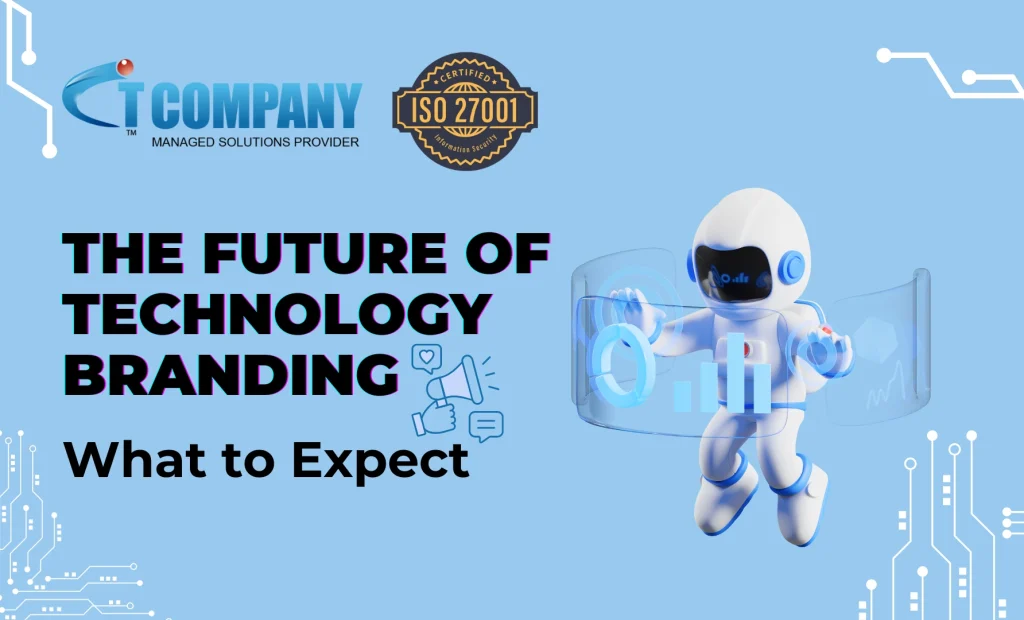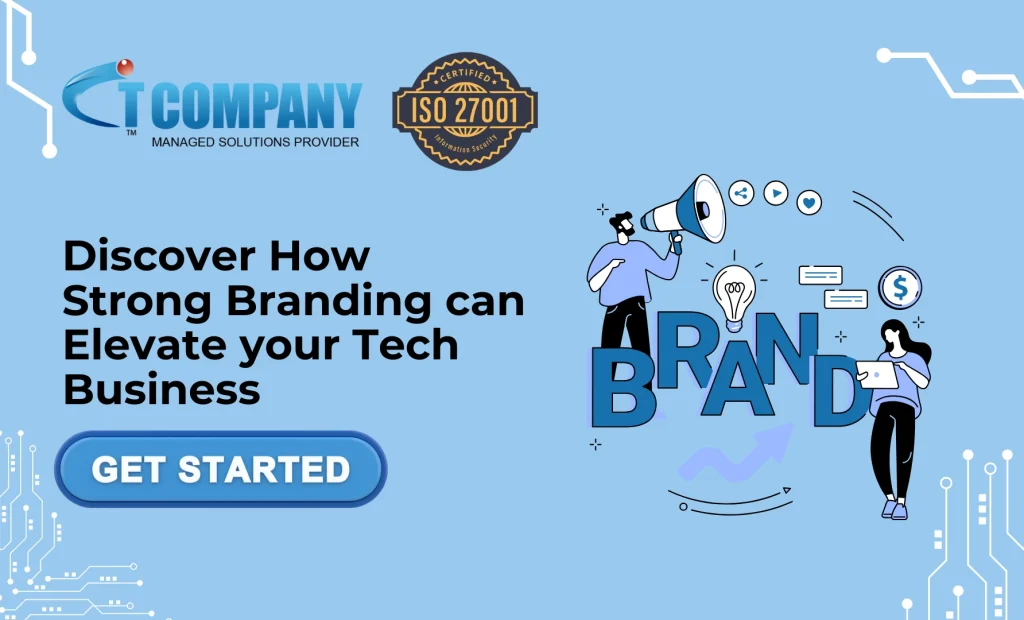
Technology branding is the process of creating a unique identity for tech products or companies. It includes developing the brand’s image, values, messaging, and customer experience. The goal is to stand out from competitors and meet customer needs effectively.
IT Company offers unique concept and outlines to make your technology brand stand out with key components and pro tips. Let’s dive deeper to better understand its purpose and goal.
Table of Contents
ToggleKey Trends in Technology Branding
1. Personalization and AI Integration
Personalization has moved from a luxury to a necessity. AI-driven insights allow brands to create tailored experiences that resonate with individual consumers.
User personalization has now shifted from a luxury to a necessity. AI driven technology is one such stark reminder. It allows brands to create a tailored experiences that resonate with customers demands and cost efficient.
| Aspect | Details |
|---|---|
| Technology | Machine Learning, Big Data |
| Consumer Benefit | Customized recommendations and targeted marketing |
| Brand Benefit | Increased engagement and loyalty |
2. Sustainability and Ethical Practices
Sustainability is no longer just a buzzword. Consumers increasingly prefer brands that prioritize ethical practices and environmental responsibility.
| Sustainability Initiatives | Description |
|---|---|
| Eco-friendly products | Use of sustainable materials |
| Carbon offset programs | Investments in renewable energy |
| Transparency | Open communication about sourcing |
3. Immersive Experiences
With AR (Augmented Reality) and VR (virtual Reality) technologies on the rise, brands can create immersive experiences that engage consumers like never before. These technologies enhance and create immersive experiences in various fields i.e. from education to technologies and beyond.
| Technology | Application |
|---|---|
| AR | Interactive ads and virtual try-ons |
| VR | Virtual tours and product demonstrations |
4. Community-Driven Branding
Building a community around your brand fosters loyalty and advocacy.
| Community Engagement Strategies | Benefits |
|---|---|
| Social media platforms | Direct interaction with consumers |
| User-generated content | Authentic promotion and feedback |
5. Omni-Channel Strategies
A seamless customer journey across various platforms is crucial for maintaining engagement.
| Channel | Importance |
|---|---|
| Online Store | Convenience and accessibility |
| Social Media | Real-time interaction and updates |
| Physical Store | Hands-on experience and personal connection |
6. Focus on Security and Privacy
One of the top most and most important concern in today’s digital world is “online Security & Protection“. Consumers are increasingly concerned about how their data is handled and stored.
Follow following strict measure to gain consumer trust impacts
- Data encryption – encrypt end to end data transfer in a secure way
- Transparent Policy – Build clear and transparent policies and procedure.
7. Influencer and Affiliate Marketing Evolution
Micro and Nano influencers are becoming key players in technology branding due to their authenticity and niche appeal.
- Micro influencers help in higher engagement rates
- Nano Influencers establish strong community ties and trust on individual level.
8. Continuous Innovation
To stay relevant, brands must commit to ongoing innovation, constantly refreshing their offerings.
These include
- Product development – address consumer needs and follow recent trends
- Technology updates – Latest technology updates especially incorporation of Ai in technology is a must for establishing a successful brand.
9. Globalization vs. Localization
Brands must strike a balance between global presence and local relevance. Global presence is the existing of technology across the border as it is said ” Technology without geographical boundaries“.
But it should be ensure that global products must have compliance with local trends, culture, and social norms. Products should be tailored to fit in local markets according to their cultural tastes.
Pro Tips for Successful Technology Branding
1. Leverage Data Analytics
Invest in data analytics tools to better understand consumer preferences and behaviors. Use this data to tailor your marketing strategies and product offerings.
2. Prioritize Authentic Communication
Be transparent about your brand’s values and practices. Authenticity can build trust and foster long-term loyalty among consumers.
3. Create Engaging Content
Utilize various content formats, including videos, blogs, and podcasts, to engage your audience. Quality content can establish your brand as an authority in the tech space.
4. Foster a Community
Encourage user-generated content and create platforms for consumers to interact. This builds a sense of belonging and loyalty.
5. Stay Ahead of Trends
Regularly assess market trends and consumer feedback. This will help you innovate and adapt before your competitors do.
6. Focus on Security
Communicate your commitment to data security and privacy clearly. This reassurance can enhance consumer confidence in your brand.
Conclusion
The future of technology branding is promising yet challenging. By staying attuned to emerging trends, prioritizing consumer expectations, and adopting innovative strategies, brands can navigate this dynamic landscape successfully.

Whether through personalization, sustainability, or community engagement, the focus should always remain on creating meaningful connections with consumers. By doing so, technology brands can build lasting relationships that drive growth and loyalty in an ever-evolving marketplace.